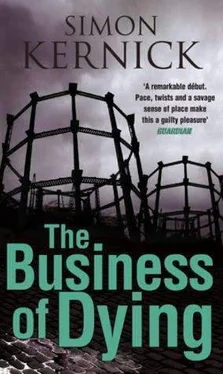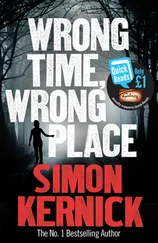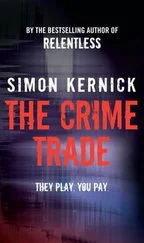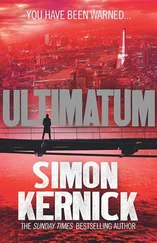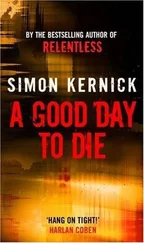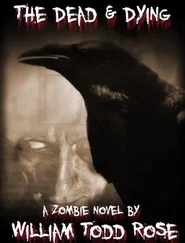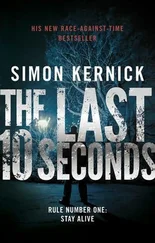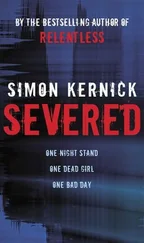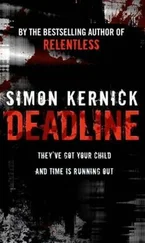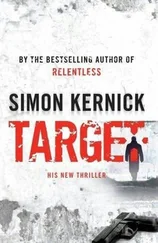Simon Kernick - The Business of Dying
Здесь есть возможность читать онлайн «Simon Kernick - The Business of Dying» весь текст электронной книги совершенно бесплатно (целиком полную версию без сокращений). В некоторых случаях можно слушать аудио, скачать через торрент в формате fb2 и присутствует краткое содержание. Жанр: Полицейский детектив, на английском языке. Описание произведения, (предисловие) а так же отзывы посетителей доступны на портале библиотеки ЛибКат.
- Название:The Business of Dying
- Автор:
- Жанр:
- Год:неизвестен
- ISBN:нет данных
- Рейтинг книги:4 / 5. Голосов: 1
-
Избранное:Добавить в избранное
- Отзывы:
-
Ваша оценка:
- 80
- 1
- 2
- 3
- 4
- 5
The Business of Dying: краткое содержание, описание и аннотация
Предлагаем к чтению аннотацию, описание, краткое содержание или предисловие (зависит от того, что написал сам автор книги «The Business of Dying»). Если вы не нашли необходимую информацию о книге — напишите в комментариях, мы постараемся отыскать её.
The Business of Dying — читать онлайн бесплатно полную книгу (весь текст) целиком
Ниже представлен текст книги, разбитый по страницам. Система сохранения места последней прочитанной страницы, позволяет с удобством читать онлайн бесплатно книгу «The Business of Dying», без необходимости каждый раз заново искать на чём Вы остановились. Поставьте закладку, и сможете в любой момент перейти на страницу, на которой закончили чтение.
Интервал:
Закладка:
'I just wanted to run it by you. See what you thought.'
'And I appreciate you thinking of me. What I'd say is this. It's strange, but strange is all. Maybe you ought to keep your ear to the ground and see how things pan out, maybe have a few words with some of the street girls, but I wouldn't worry about it too much yet. There's plenty of other things to concern yourself with, and you shouldn't be thinking about them anyway. You ought to be in bed resting and getting yourself well so you can come back here and help us out.'
But I'd never be going back to help them out. I'd miss Malik, even if he had started calling me Dennis and dispensing advice just a little bit too readily. He was a good copper, though, and the thought that perhaps I had played a small part in getting him that way felt good. I told him he'd be doing me a favour if he could keep his ears open for any relevant developments among the King's Cross whores, and he told me he would. I thanked him, said that I'd see him shortly, promised him I'd get to bed straight away and take it easy, then rang off.
But I didn't go to bed. Instead, I spent the rest of the day mulling over my plans and making preparations; occasionally phoning Danny's mobile, always without success; sometimes stopping to look out of the window at the iron-grey sky and pondering the fates of Molly Hagger and Anne Taylor; wondering what secrets Miriam Fox had taken to her grave.
And all the time something was bothering me, and I couldn't put my finger on what it was. Something I'd missed; something that flickered and danced round the recesses of my memory like the shadows of a flame, irritating me because it was important in some ill-defined way, but I was unable to coax it out, however hard I tried.
And as darkness fell on my last night as a serving police officer, and the rain the forecasters had warned us about finally swept in from the west, I realized I was still just as ignorant of what had happened in the Miriam Fox murder case as I had been on the morning I'd first stared down at her bloodstained body.
28
I phoned a minicab to take me down to the Gallan Club, and it got me there at about a quarter to eight. It was raining steadily and, though not as cold as the previous night, there was still a bite in the air.
I'd never been to the Gallan before, even though it was only about half a mile from where I lived. I'd walked past it plenty of times though, most notably the previous day when they'd had a blackboard outside saying that tonight was contemporary poets night. It wasn't really my cup of tea, but I suppose it made a change from sitting around in the pub. It was quiz night at the Chinaman as well, and it would be the first time I'd missed it for non-work reasons for as long as I could remember.
The interior of the Gallan was small and dimly lit. The stage, empty when I walked in, was at the end furthest from the door, while the rest of the floor space was taken up by evenly clustered round tables. A bar on the left-hand side ran the length of the room. All of the tables were occupied, and a small crowd milled about the bar. Most of those present were the type of people you'd expect at a poetry evening where the headline act was someone called Maiden Faith Ararngard: fresh-faced students in long coats, sipping delicately at their beers; a group of eco-warriors with an overabundance of piercings and pantomime clothes; and a few older intellectual types who looked as though they spent every waking hour in the hunt for hidden meanings to pointless questions.
I'd half expected this type of line-up and had dressed down as far as my wardrobe would allow so that I didn't look too much out of place. It hadn't worked. Faded jeans and a sweatshirt with a hole in the elbow were never going to blend me in with this crowd, although at least I was pretty much guaranteed there'd be no undercover coppers in here. Like me, they'd have stuck out a mile.
Carla hadn't arrived, so I went to the bar and ordered a pint of Pride from a guy with a bolt through his nose and a beard that was close to a foot long. He gave me a bit of a funny look like I'd come dressed as a Doctor Who villain, but he was efficient, and that's always the most important trait for any barman. I paid for my drink and stood close to the door so that I could see Carla when she made her entrance.
I didn't feel particularly comfortable in there, and in a way that said something about her and me. She knew we were never going to be an item; it was me who found it difficult to accept. But accept it I was going to have to do. From tomorrow I was on the run. I had a false passport in my possession which I'd got from one of Len Runnion's contacts a few months back. It had been an insurance policy after a CIB investigation into a couple of ex-colleagues at the station had given me a case of cold feet. It was a good one, too. I'd grown a ten-day beard and put on some glasses for the photograph and it looked very unlike me. But I wasn't going to be able to use it yet. There'd be an all-ports alert out for me as soon as I broke cover, which would mean me having to lie low for a couple of weeks until the fuss had died down. Maybe I'd drive down to Cornwall or up to Scotland, somewhere a bit isolated. Not for the first time that day, I experienced a strangely exhilarating feeling of apprehension.
I was vaguely amused to see that the first act up was Norman 'Zeke' Drayer, a.k.a., apparently, the 'Bard of Somers Town'. Norman was dressed in a Lincoln green jacket with tassles that looked as though it was made of felt, a pair of cricket whites, and knee-length black boots. Thankfully, he didn't have a hat with a feather in it on his head, or he'd have been a dead ringer for Robin Hood.
He danced on to the stage to polite applause and immediately opened up with a bawdy ballad about a buxom country girl called Annie McSilk and the difficulties she had fending off the advances of amorous farmers. It was actually quite good, and I had a few laughs in spite of myself, even if it did go on a bit too long. Unfortunately, it was also the high point of his act. The next three poems in his stint veered off into the boring half-world of social justice and had me looking at the door every twenty seconds for any sign of Carla. By the time he danced off the stage, with theatrical bows all round, the applause had been all but drowned out by the buzz of individual conversations.
I was jealous of the people in there, jealous because they had nothing to fear. I watched them as they talked among themselves, discussing their issues as if they were of real importance, safe in their cocooned little worlds.
I felt a tap on the shoulder and turned round to see Carla standing there. Her face was more heavily made up than usual, but the effect seemed to add to rather than detract from her beauty. She was dressed in a long black coat, underneath which was a simple white blouse and a pair of tight-fitting jeans. She greeted me with a brief peck on the cheek and I told her she looked good.
'Why, thank you, kind sir,' she replied with a faint half smile.
'What do you want to drink?'
'I could murder a vodka and orange.'
I got the attention of a barmaid, who came over and took the order.
'So, you're really going then, Dennis?' she said, when the barmaid had gone. 'You know, I really didn't think you'd have the bottle.'
'Appearances can be deceptive,' I told her. 'Any news on Anne?'
'Nothing yet, but one of the other girls said that she'd been seeing a new man, and apparently she'd talked about going off with him.'
'Really? Well, let's hope it's that then. Did you report it to the police?'
She nodded. 'I did. They didn't seem that interested.'
'Did you tell them about Molly?' She nodded again.
'And they still weren't interested?'
Читать дальшеИнтервал:
Закладка:
Похожие книги на «The Business of Dying»
Представляем Вашему вниманию похожие книги на «The Business of Dying» списком для выбора. Мы отобрали схожую по названию и смыслу литературу в надежде предоставить читателям больше вариантов отыскать новые, интересные, ещё непрочитанные произведения.
Обсуждение, отзывы о книге «The Business of Dying» и просто собственные мнения читателей. Оставьте ваши комментарии, напишите, что Вы думаете о произведении, его смысле или главных героях. Укажите что конкретно понравилось, а что нет, и почему Вы так считаете.
